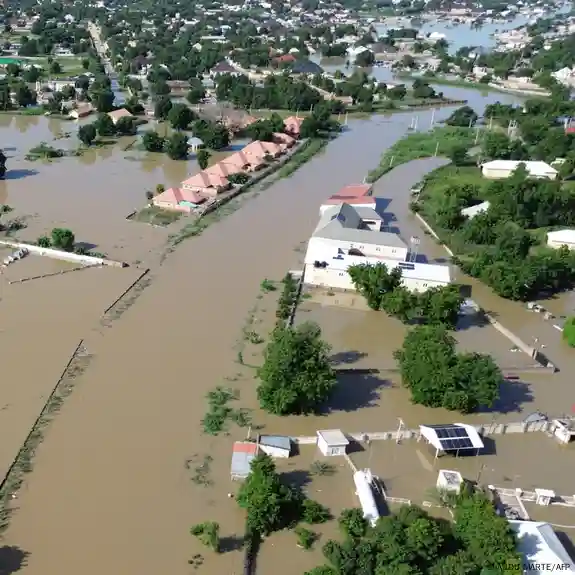NBC NEWS
The world has a worsening water crisis and half of all food production will be at risk of failure by the middle of this century.
That’s the worrying message from a report released Wednesday by a major international study.
Half of the world’s population already faces water scarcity and that proportion is growing too, according to the Global Commission on the Economics of Water, which is funded by the Dutch government and facilitated by the Organization for Economic Cooperation — a group of the world’s richest economies.
While water scarcity will have a seismic effect on humans and the environment, it will also have an economic impact too. The GCEW estimates that a lack of clean water due to climate change and the chronic mismanagement of land could cut global economic growth by 8% on average, with the loss almost double that in lower-income countries.
“The global water crisis is a tragedy but is also an opportunity to transform the economics of water — and to start by valuing water properly so as to recognize its scarcity,” said Ngozi Okonjo-Iweala, Director General of the World Trade Organization and one of the commission’s co-chairs in a statement.
With nearly three billion people already in areas experiencing unstable water trends and several cities sinking due to the loss of below-ground water, densely populated areas such as northwestern India, northeastern China and southern and eastern Europe will bear the brunt of global water mismanagement, the report says.
Part of the problem is a lack of collective will among governments and businesses, as well as market forces that treat water like a commodity, Mariana Mazzucato, professor and founding director of the University College London Institute for Innovation and Public Purpose told NBC News.
“We can do it, we’ve just chosen not to because we have inertia, because we have profits being made from not dealing with the crisis. Some 80% of wastewater isn’t recycled,” Prof. Mazzucato said.
“Like many problems including climate change, biodiversity and health pandemics, we can turn those problems into massive opportunities for investment,” she added.
The OECD and the government of the Netherlands set up the GCEW research body in 2022, with Dutch lawmakers giving it enough funding to operate for two years and deliver this week’s report, which will be its last. The OECD says it wants to explore continuing the commission’s work in collaboration with other organizations.
One glaring absence from the world’s response that the release highlights is the lack of any coordinated approach to dealing with water crises. Last year, the United Nations held its first water conference in 50 years and only last month did the body appoint a special envoy on water.
“The global water crisis is a ticking time bomb. If we do not tackle it now, the cost of inaction will be felt by us all,” said Tim Wainwright, U.K. chief executive of international non-governmental organization WaterAid in a statement. “Tackling this crisis requires government leadership, finance and the coordination of donors, private sector and affected communities worldwide to drive the crucial action needed.”
Among the recommendations the report makes are transforming the way water is used in farming — improving efficiency and shifting away from animal-based diets — as well as restoring natural habitats and treating and renewing more wastewater.
Even so, a lack of public funds being devoted to water issues by lawmakers around the world will do little to solve the problem. Governments “can’t even react to the symptoms of the water problem, let alone solve the problems if they’re being fiscally strangled,” said UCL’s Mazzucato.
The impact of climate change appears frequently in the state-sponsored body’s report, with water systems being the first to show the impact of changing weather patterns. In recent years, the Amazon has experienced more droughts, mountains have seen glaciers melt and Europe has suffered more floods.



Connect with us on our socials: